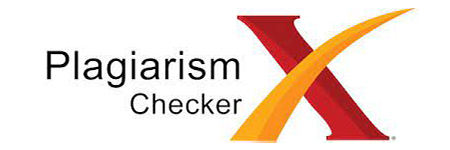Pengelolaan Hasil Laut Berbasis Komunitas Nelayan di Pulau Sumbawa untuk Mendukung Pariwisata Kuliner Lokal
DOI:
https://doi.org/10.70716/unity.v1i2.105Keywords:
Marine Resources, Fishermen Community, Culinary Tourism, Sumbawa Island, Community-based ManagementAbstract
Community-based marine resource management among fishermen in Sumbawa Island is a key strategy to support local culinary tourism. This article aims to analyze how community-based approaches can enhance the added value of marine products and strengthen the appeal of culinary tourism in the region. The methods include interviews with local fishermen, field observations, and secondary data analysis from tourism and fisheries reports. The findings indicate that through community-based management, such as the establishment of fishermen's cooperatives, training on seafood processing, and collaboration with the tourism sector, economic and social potential can be improved. This strategy also promotes the sustainability of marine ecosystems. Therefore, community-based marine resource management among fishermen in Sumbawa Island serves as a replicable model for supporting sustainable tourism in other regions.
Downloads
References
Bailey, C., & Pomeroy, C. (1996). Resource dependency and development options in coastal Southeast Asia. Society & Natural Resources, 9(2), 191-199.
Béné, C., Macfadyen, G., & Allison, E. H. (2007). Increasing the contribution of small-scale fisheries to poverty alleviation and food security. FAO Fisheries Technical Paper No. 481. Rome: FAO.
Berkes, F. (2009). Evolution of co-management: Role of knowledge generation, bridging organizations and social learning. Journal of Environmental Management, 90(5), 1692-1702.
BPS NTB. (2023). Statistik hasil laut dan pariwisata di Pulau Sumbawa. Mataram: Badan Pusat Statistik Provinsi Nusa Tenggara Barat.
Christie, P., Lowry, K., White, A. T., Oracion, E. G., Sievanen, L., Pomeroy, R. S., & Pollnac, R. B. (2005). Key findings from a multidisciplinary examination of integrated coastal management process sustainability. Ocean & Coastal Management, 48(3-6), 468-483.
Dinas Kelautan dan Perikanan NTB. (2023). Laporan tahunan perikanan berkelanjutan di Pulau Sumbawa. Mataram: DKP NTB.
Kooiman, J., Bavinck, M., Jentoft, S., & Pullin, R. (2005). Fish for life: Interactive governance for fisheries. Amsterdam: Amsterdam University Press.
Lam, M. E., & Pauly, D. (2010). Who is right to fish? Evolving a social contract for ethical fisheries. Ecological Applications, 20(2), 363-374.
Ostrom, E. (1990). Governing the commons: The evolution of institutions for collective action. Cambridge: Cambridge University Press.
Pollnac, R., & Poggie, J. J. (2008). Happiness, well-being, and psychocultural adaptation to the stresses associated with marine fishing. Human Ecology Review, 15(2), 194-200.
Salas, S., Chuenpagdee, R., Seijo, J. C., & Charles, A. (2007). Challenges in the assessment and management of small-scale fisheries in Latin America and the Caribbean. Fisheries Research, 87(1), 5-16.
Downloads
Published
How to Cite
Issue
Section
License
Copyright (c) 2025 Taufik Ardana, Rizal Zulmi

This work is licensed under a Creative Commons Attribution-ShareAlike 4.0 International License.











